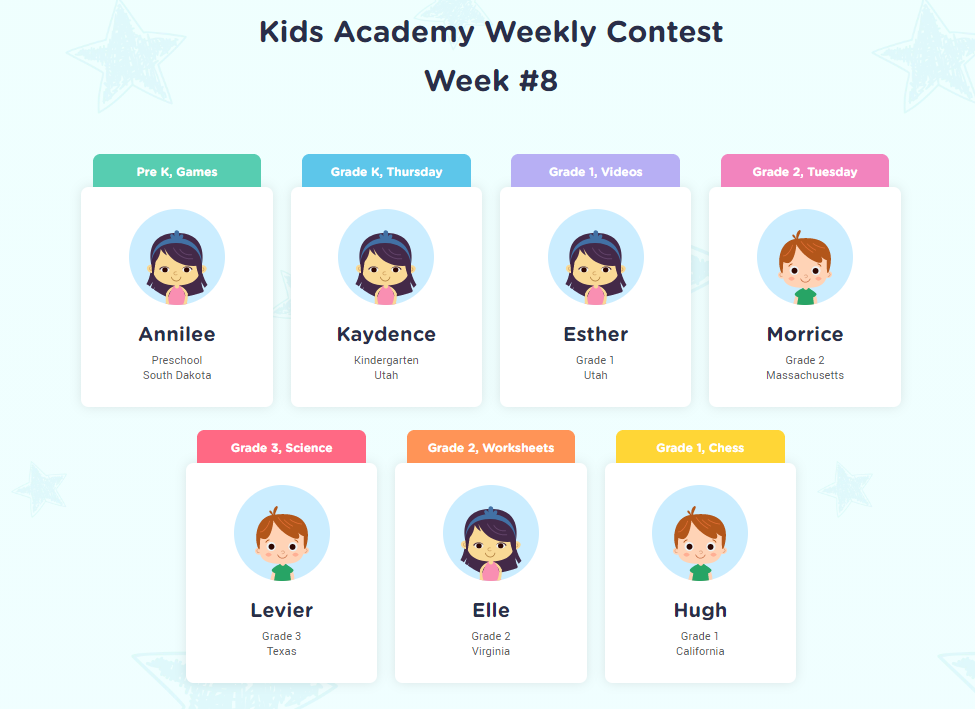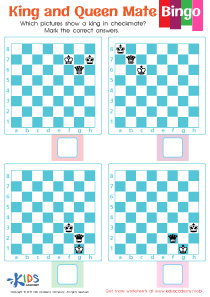Number Recognition Normal Chess Worksheets for Ages 7-8
3 filtered results
-
From - To
Discover our engaging Number Recognition Chess Worksheets designed specifically for ages 7-8! These printable activities uniquely blend the strategic fun of chess with essential number recognition skills. Each worksheet is crafted to stimulate young minds, helping kids enhance their math abilities while learning to identify and differentiate numbers through chess-themed exercises. Perfect for classroom use or at-home practice, these worksheets foster both cognitive and critical thinking skills. Embrace an innovative approach to learning where education and entertainment go hand-in-hand. Boost your child’s confidence and competence in numbers today with our expertly designed resources!
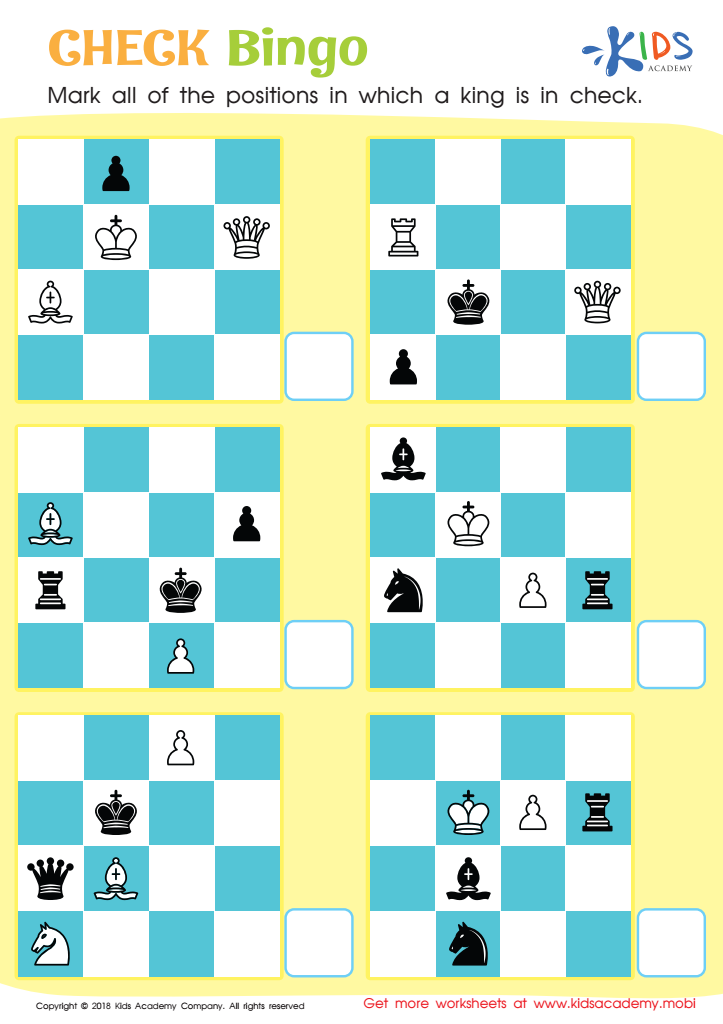

Check Bingo Worksheet
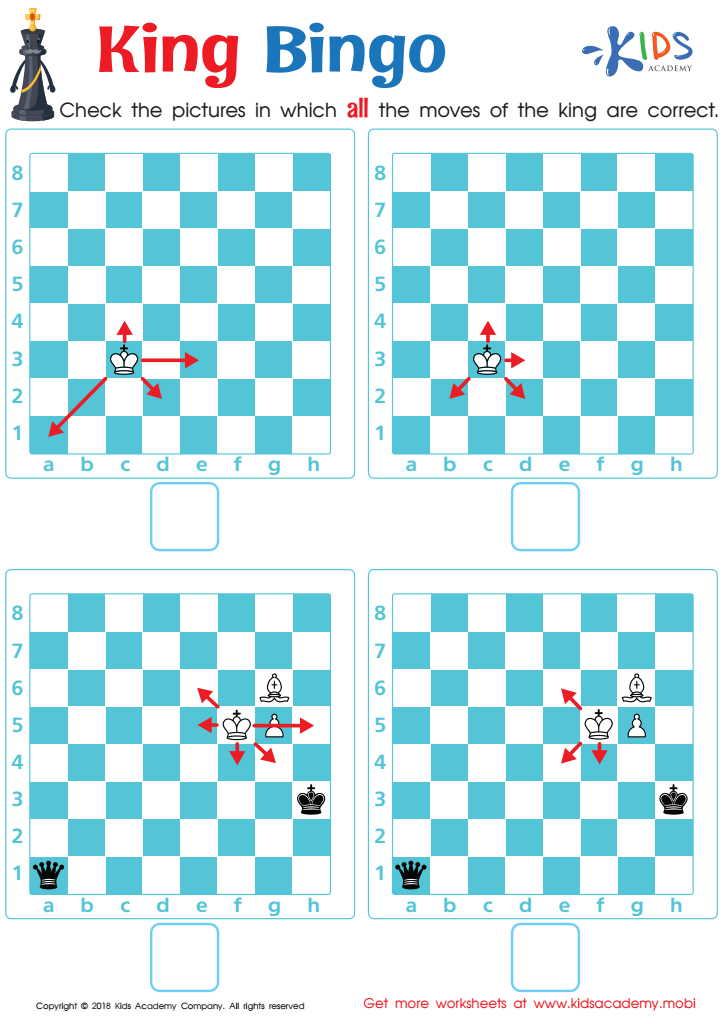

King Bingo Worksheet
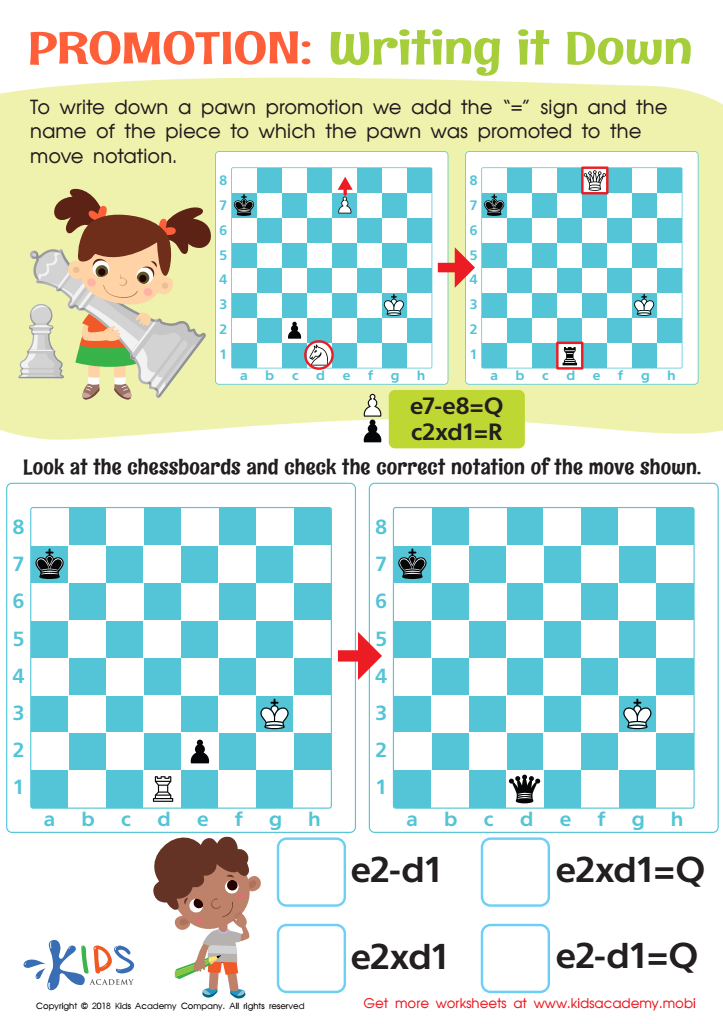

Writing it Down Worksheet
Number recognition through chess is a fantastic tool for parents and teachers to implement for children aged 7-8. Chess is not only a classic game of strategy but also a platform for integrating essential academic skills. Introducing number recognition in the context of chess can make learning engaging and concrete for young minds.
Numerals are innately part of chess – from the grid coordinates to the sequence of moves. By associating these numbers with the pieces' movements across specific board squares, children can develop a strong grasp of number recognition naturally. This kind of practice supports a deeper understanding of mathematical concepts, such as sequencing, pattern recognition, and spatial reasoning.
Moreover, this age group is at a pivotal point in developing critical thinking and problem-solving skills. Chess teaches patience, concentration, and the ability to strategize – skills valuable both academically and in daily life.
Including number recognition in chess-based exercises can turn abstract numbers into visual and hands-on learning experiences. For teachers, this approach aligns well with an interactive curriculum. For parents, it presents a unique and fun avenue when instilling core educational values at home. Ultimately, using a multi-faceted game like chess can bolster children’s confidence and competence in number recognition, setting a strong foundation for future academic success.

 Assign to My Students
Assign to My Students







